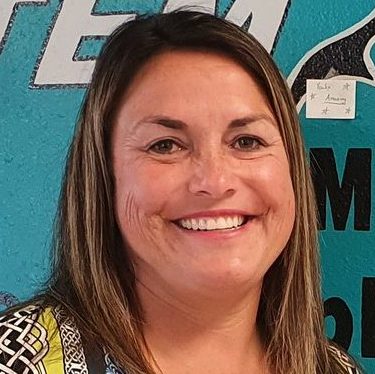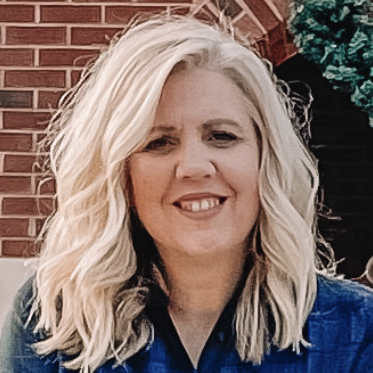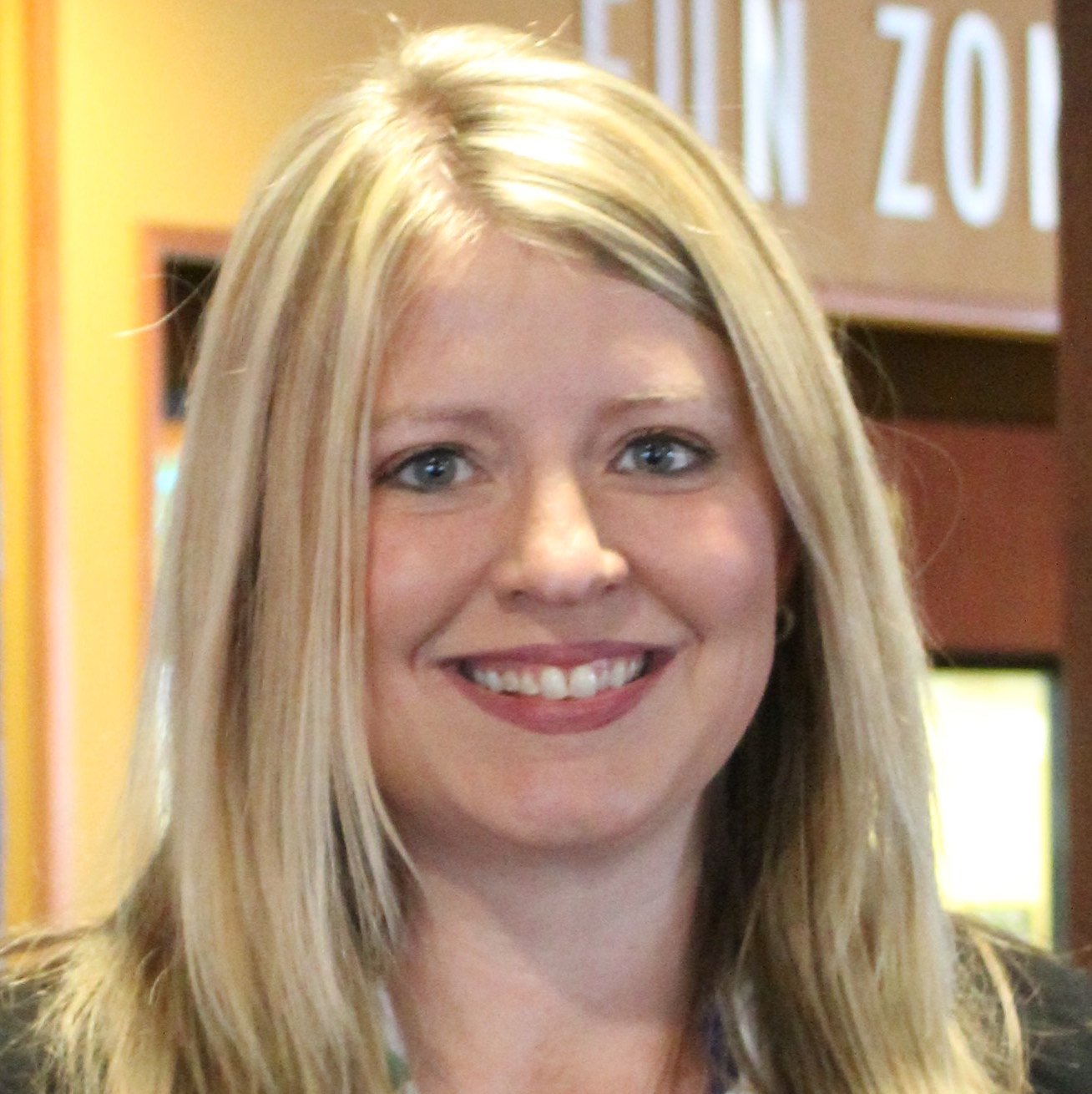District Administration is taking a look at how innovative leadership by elementary-level principals both carried their schools through the challenges of COVID and how the experience will elevate instruction going forward.

Do more project-based learning and do it outdoors.
That philosophy has been driving Principal Patricia Gallegos throughout the pandemic at San Antonito STEM Magnet Elementary in Albuquerque Public Schools. It’s an approach that will only expand even as in-person instruction again becomes the status quo, says Gallegos, who was just named a principal of the year by Magnet Schools of America. “We did a lot of thinking about how to get kids outside and tie in our lessons—how to get them moving and not keep them in front of a screen for five hours a day,” Gallegos says.
At San Antonito, over the last two years teachers integrated STEM learning more deeply into hikes and scavenger hunts, allowing students—and their families—to collect objects and make PowerPoint reports about their explorations. Tech integration is also key at the 1-to-1 school, so teachers—even during remote instruction—encouraged students to use their Chromebooks to photograph the environments in their own backyards. Last summer, the school built a second outdoor classroom so teachers could bring even more learning activities outdoors, allowing students to apply concepts they learn in the classroom to the natural world, Gallegos says.
As the school contends with an approximately 90-student drop in enrollment, teachers will be working to further enhance the project-based learning curriculum by integrating Next Generation Science Standards, with a particular focus on engineering concepts. “Our teachers are continually looking at instructional practices,” she says. “How do we change them up and make sure it’s targeted instruction so we’re making the gains that our families expect?”
Test scores are just a guide
Don’t worry about test scores.
That’s what Frank Galligan, principal of Warwick Neck Elementary School in Rhode Island, told his teachers as the scale of the pandemic became apparent. That message hasn’t become any less important even as students have returned to in-person instruction. Low test scores are not a big surprise after two years of disruptions. “We’re using test scores to guide discussions, not to target teachers for not doing their jobs,” says Galligan, who was recently named an outstanding first-year principal of the year. “We know test scores are going to be low. It’s not anyone’s fault, but it would be someone’s fault if we were not being proactive about addressing it.”
To reverse the academic impacts of COVID, Galligan and his teachers are focused on providing more small-group instruction while other students work in station rotations that include independent reading and an online ELA and math platform. Also more important than tests scores is the mental health of students and staff. To create a fun environment in his school, Galligan has dressed up like the superhero the Flash and the Pokemon character Pikachu to reward students for hitting academic targets. He has also promised to dye his hair and enter a dunk tank when students meet their next benchmarks.
Behavior has been another concern. He and his teachers have worked to be explicit with students about how they are expected to behave in places such as hallways, the cafeteria and the playground. His teachers this year have been following Recess Rocks, a grant-funded program, to engage students in positive and productive play. “Kids have forgotten how to play together,” he says. “It helps them feel more in control when they know what’s expected.”
‘It made us a better school’

Newly created “Take a Break” stations offer both students and staff at West View Elementary School in rural Tennessee a place to calm themselves as the stress of the pandemic lingers, Principal Robin Street says.
Students can let teachers know they need a break and go to the supervised break station that offers puzzles, books and writing prompts. Adults can check in on students and bring in a counselor if needed. Other times, students just need to sit for a few minutes before they return to class, says Street, whose school is part of Washington County Schools. West View Elementary remained on remote instruction for large parts of 2021, she adds.
“The kids weren’t used to sitting still and learning,” Street says. Behavioral issues, coupled with the trauma students have experienced over the past two years, led the school to introduce morning meetings each day. Teachers often start by asking the class a simple question such as, “What’s your favorite animal?” or “What was your favorite vacation?”
“Teachers can tell by the responses how some students are coming to school,” Street says. “It helps our teacher recognize ‘I need to handle this child a different way today. I need to give them a little extra time or attention or they need to see the counselor before they start working.'”
Street has also made her school part of a trauma-informed care initiative. “I feel like the trauma is going to be around for a while,” she says. “Students and staff are going to remember that year they went home and never came back.”
More from DA: How much superintendents are earning now, plus one way K-12 leaders are changing
When teachers need a break, they can go to a designated room with comfortable furniture and soft music. Street or the assistant principal covers that teacher’s class while they are recharging. Throughout the pandemic, Street has been holding appreciation events for teachers, such as lunches, hot chocolate bars and outdoor faculty meetings. She and her assistant principal also delivered candy and messages of support to each teacher’s home mailbox. And she continues to provide teachers with ample time to collaborate and share ideas about instruction and social-emotional support. “Even though the pandemic was a terrible thing to go through, it made us a better school,” she says. “We learned a lot of important information about our families that we didn’t have any knowledge of before.”
Grace and the comfort zone

At the beginning of the pandemic, Dorian Maag was a new principal at Thomas Jefferson Elementary at the Rock Island-Milan School District #41 in Illinois. Her priority, then and now, is building strong relationships with students, staff and families. Making connections, however, was challenging after schools shifted to remote instruction and adults and children, alike, were forced to grapple with challenges no one had ever faced before, Maag says. “I told staff to give themselves grace and to give students grace, knowing there was work to be done and we still had goals of helping students grow and learn,” Maag says. “It was finding a balance between giving ourselves grace and pushing us to go out of our comfort zone.”
Maintaining and strengthening relationships remains at the forefront for Maag as masks mandates expire and students and staff seek to regain a sense of normalcy. Now that all students are back in person, Maag says she is spending more time chatting with them in the cafeteria, in classrooms and on the playground.
Another priority coming out of the pandemic is recovering lost learning caused, in part, by the weeks students were kept out of school while they were quarantined. Maag has formed a Title I team consisting of a teacher and paraprofessionals to provide personalized, small-group interventions to students in math and reading during the school day. The school’s professional learning communities will expand their work in using data to target and strengthen instruction around students’ needs.
Maag is also focused on keeping everyone’s morale high with fun activities and contests this year. Teachers can nominate students each week to have donuts with Maag and in the school’s kindness challenge, classes that avoid behavioral referrals can win extra recess. “Administrators, teachers, staff members—everyone deserves recognition for getting through this,” she says. “I tell my teachers that textbooks will be written about how you are doing things during the pandemic that are changing the face of education. You’re pioneers.”
More of a servant leader
Training educators and staff on trauma-informed care became a COVID priority that will remain imperative as Principal Sabrina McClard’s students recover from the turbulence of the past two years. That work began in March 2020 when schools shut down and McClard’s team at J.W. Wiseman Elementary School in Tennessee’s Sumner County Schools began conducting weekly check-ins with each student and their families, McClard says. “Sometimes in schools, you have adults who want what’s best for kids but don’t understand trauma because they didn’t experience it as a child, so it’s hard for them to relate when a kid has a major meltdown,” she says. “It’s hard to separate the behavior from the reason the behavior is occurring.”
As a leader, she has learned to take the same approach toward the challenges her staff has faced, and also recognize the pandemic has impacted everyone in different ways. “When you honor what they’re going through and still hold them to high expectations, you become more of a servant leader than you ever were before.”
Another part of trauma-informed and social-emotional work is mentoring students. McClard herself mentors several students with whom she meets weekly, regardless of academic performance or any behavioral issues with which they may be struggling. “Kids come to school and expect academic support, which is always there, and sometimes they need more,” she says. “They need somebody who’s going to attend to the heart; someone who is going to sit and talk about their interests that have nothing to do with academics.”
Another positive development of the last two years is the flexibility staff and families have achieved with virtual meetings. Parent participation in IEP meetings and other activities has increased because they don’t have to miss work to attend. “Zoom has opened up so many more opportunities for families to engage,” she says. McClard says her school—a Title I school that’s required to have four parent events a year—will continue to hold drive-through activities that many districts turned to as a safety precaution during the height of the pandemic. Some families found these events more convenient to attend, she says.
Finally, online learning will become a permanent fixture in her schools. Teachers created a library of instructional videos during the pandemic while the school and district now has better ability to loan out computers and other devices. “One thing we can now do better that we didn’t do before is to provide students with electronics and exposure to instruction while off,” she says. “Whether it’s COVID, flu or surgery, students don’t have to miss learning.”







